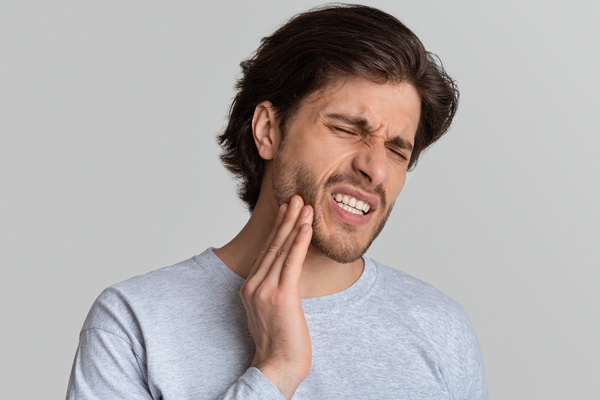Your Jaw Pain May Be Caused by Misaligned Teeth

Jaw pain is usually symptomized by throbbing pain. It can start abruptly, or mildly at first and worsen over time. Regardless, the symptoms depend on the origin of the pain. Knowing the causative agent is the first course of action in treating this condition. One of the most common causes of jaw pain is misaligned teeth, otherwise known as malocclusion.
Jaw pain and TMJ
Jaw pain is a sign that there is something wrong with the temporomandibular joint (TMJ). These joints are two on the jaw and are positioned bilaterally in front of the ears. The joint combines a hinge and gliding joint mechanism to gain a wide and smooth range of motion. The joint contains a complex layer of tissues and fluids that support and move the jaw.
How do misaligned teeth affect the jaw?
The jaw joints are triggered by every activity in the oral cavity, including chewing, brushing and sucking. Depending on the severity of the misalignment, one side of the mouth may suffer extra biting pressure than the other side. An uneven bite can strain your jaw muscle and jaw joints. It can also cause your jaw to move far too forward when biting. All of these can lead to jaw pain.
Many people opt for orthodontic treatment simply to correct the crooked teeth that they are not proud of. However, not many people are concerned about their smile’s appearance enough to dedicate the time and energy of getting braces or other orthodontic treatments to change their appearance. They would prefer to live instead with uneven teeth.
What many people do not understand, however, is that the effects of misaligned teeth are not just cosmetic. Misaligned teeth can cause different health issues, from mildly uncomfortable symptoms to serious complications. Teeth that are not correctly aligned can cause joint pain and may cause discomfort with eating and speaking. If you have crooked teeth, you can correct this in many ways.
Correcting teeth misalignment
Correcting malocclusion depends on the situation of the patient, but a dental misalignment can be treated in three major ways:
- Muscle relaxation therapy: Stress management techniques that include muscle relaxation therapy can be used to relax the TMJ joint naturally
- Braces and palate expanders: Braces are used to align the teeth over time. Adults who are concerned about the unsightly appearance of traditional braces can opt for Invisalign clear aligners
- Surgery: If the misalignment is too severe and refuses to respond to other traditional treatment, reconstructive surgery may be the final resort
Call our office to learn more
Any jaw pain that persists for more than a few hours at a time or occurs continuously needs medical attention. Many treatments are available for treating jaw pain, and they mostly entail dental care. Have you been struggling with jaw pain? We are here to help/ Call Complete Dental at our Fresno office to learn more or to schedule an appointment.
Request an appointment here: https://myfresnodentist.net or call Complete Dental at (559) 448-9000 for an appointment in our Fresno office.
Check out what others are saying about our services on Yelp: Jaw Pain in Fresno, CA.
Related Posts
Disorder of the temporomandibular joint, or TMJ, is a condition that can cause difficulty with jaw functions. The disorder can cause jaw pain that restricts how you open and close your mouth. You might notice clicking sounds or jaw locking when eating, talking or yawning. Continue reading to learn more about the symptoms, diagnosis and…
In the dental community, TMJ disorders are a relatively common issue. Many adults experience the telltale signs of jaw problems at some point in time. These can include:InflammationPain or sorenessTension and stiffnessClicking/popping when opening or closing the mouthTrouble opening the mouth fullyFor some people, TMJ disorder is a serious, chronic problem that requires medical intervention.…
People all over the country suffer from temporomandibular joint disorder, but many fail to seek TMJ treatment. Far from being a minor nuisance, this condition can be easily aggravated by many daily activities and can cause multiple complications if left untreated. Here are just a few consequences of ignoring symptoms of this disorder and allowing…
The temporomandibular joint of the jaw connects the bone to the skull and is responsible for movements of the jaw.Temporomandibular joint disorders, commonly called TMJ, cause pain in this jaw’s joint and the surrounding muscles that are responsible for movement and function. The cause of most TMJ disorders is often unknown but can be related…


